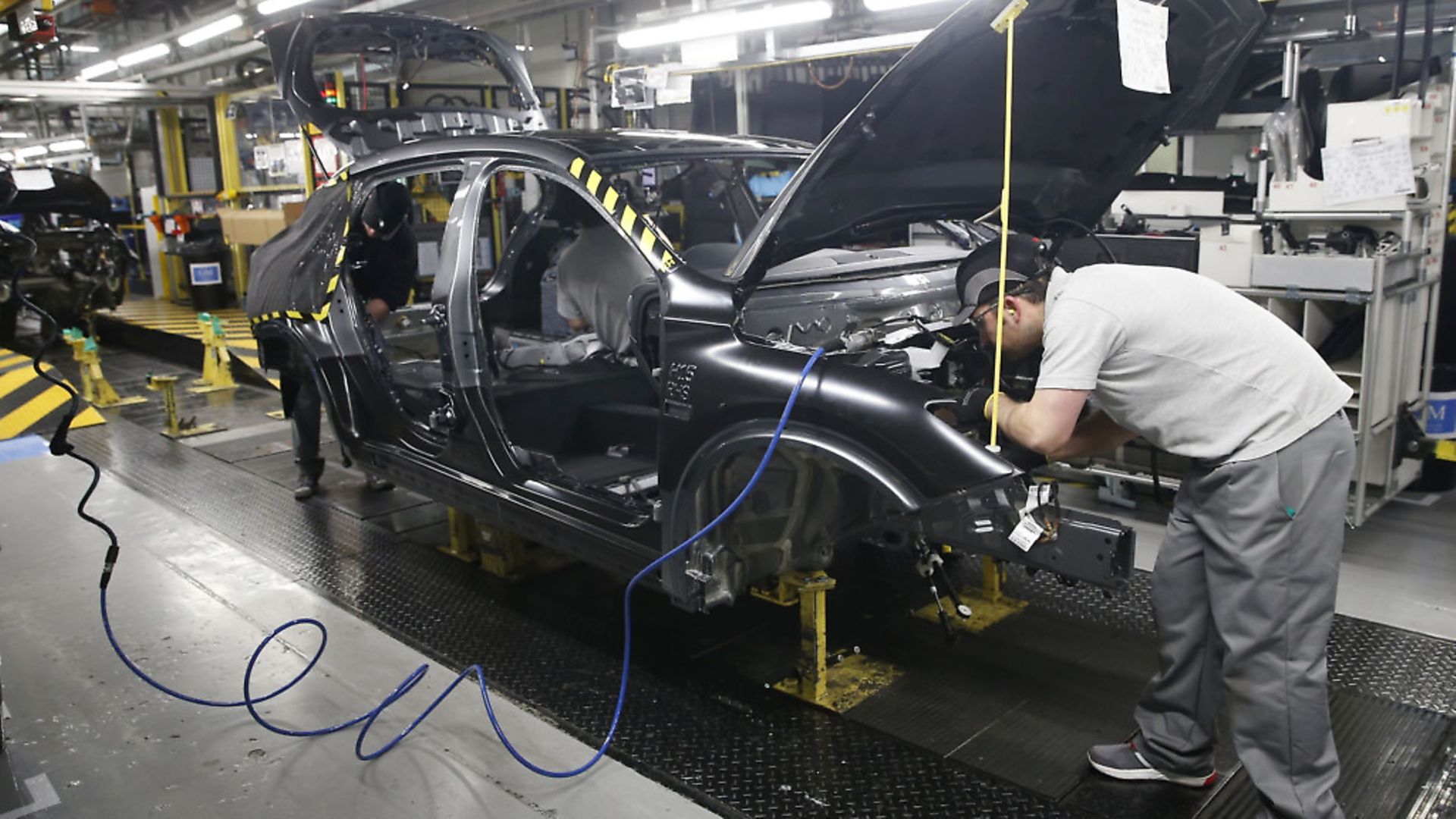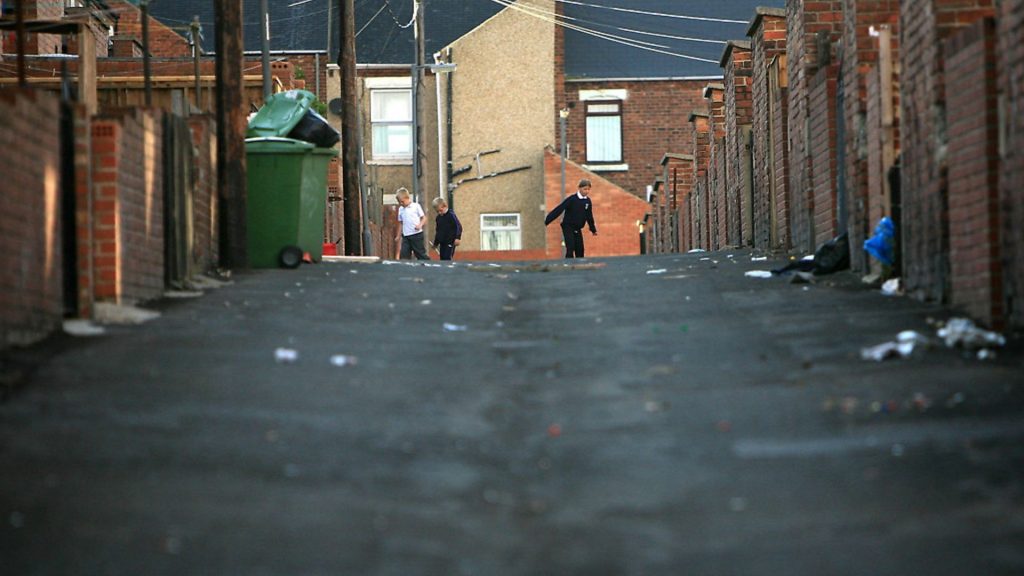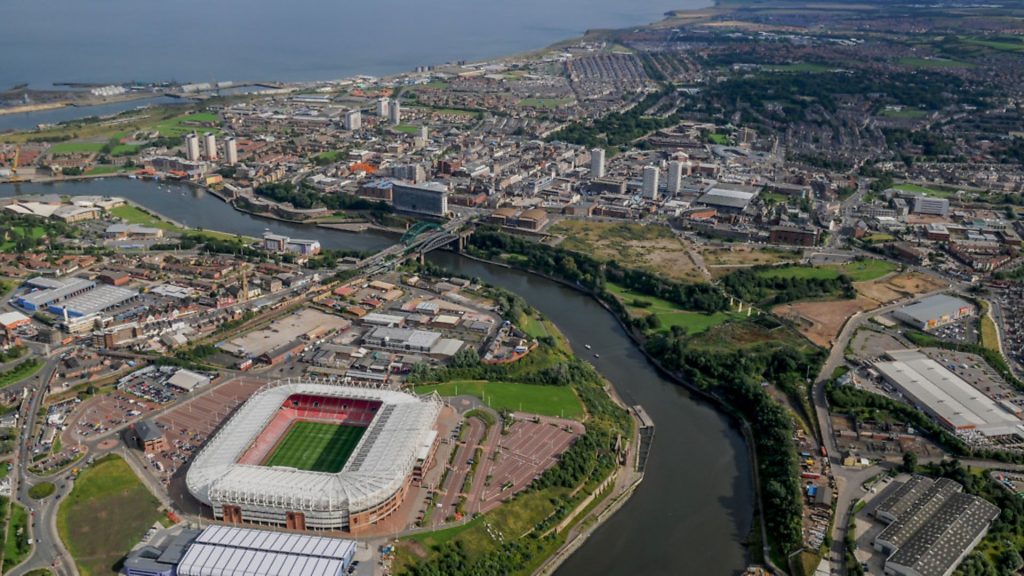
Has Sunderland changed its mind on Brexit? We visit the city which led the charge for Leave and finds its still-burning rage is directed at cuts, rather than Brussels

Do you remember the Mackem Roar? Not the noise made by the home crowd at the Stadium of Light whenever a Sunderland player managed to find the back of the net – a cry rarely heard last season during a dismal campaign which ended with the Black Cats’ ejection from the Premier League.
No, this was the delirious outburst of joy that penetrated a small tennis centre in Silkworth on referendum night, drowning out returning officer Sue Stanhope’s announcement of a huge win for the city’s Leave campaign – a far higher Out vote than pollsters had predicted – and a signal that June 23, 2016, would, for those of us committed to the ideals of this newspaper, be forever known the day the world turned upside down.
It was our Portillo moment, the first manifestation of the horrors to come, and it sent shockwaves across the country – and the world. So it is with some trepidation that I venture into Brexit City just over a year later, the memory of that piercing, guttural roar returning to haunt me as I trudge out of the metro railway station and make my way into The Bridges shopping centre.
My dark mood had been fleetingly lifted by a poll in the Sunderland Echo suggesting that many Mackems – the colloquial name for the city’s 273,000 residents – had been overcome with ‘Bregret’. But when I consulted some Wearside friends, I was advised to treat the paper’s results with caution. True, 63% of those canvassed were now, apparently, backing Remain, but this was a self-selecting survey of a few thousand website users. And, well, who believes polls any more?

It turns out, if my day-trip to the north-east coast can be any guide at all on such matters, that the regional daily had it right. Sunderland, it seems, is the city that changed its mind.
The first shopper I chat to into is Raymond Davies, an 85-year-old member of the local Conservative Party. Raymond is very angry. He was a staunch Leaver but now feels betrayed by the unfortunate series of events triggered by that terrible – although to him, at the time, positively ecstatic – night. ‘I wanted Britain to control itself and not be controlled – by foreigners, by Europeans,’ he declares. ‘Since this carry on with May, having a stupid election when she had a majority, I’m starting to wonder whether I made the right decision.’
The Brexit vote brought forth The Maybot who is, he believes, an unmitigated disaster – ‘I wanted Boris as Prime Minister’ – and could, through her ineptitude, let in the communistically-inclined opposition. ‘We are frightened to death that Corbyn could get in,’ he declares. ‘He used to be a joke. Not any more.’
Raymond’s friend, who tells me he is in his 90s but refuses to disclose his name, calls the bearded one a murderer and adds: ‘I echo every word. I’m very disillusioned. Look at the government now. I’m fed up with the politicians.’
By the time I have reached The Peacock, the first boozer I come to on leaving the indoor mall, this has become an established theme. Those Wearside friends, recoiling from the Brexit City caricature that has come to dominate perceptions of their hometown ever since that fateful day, recommended a pint in this refurbished pub which, like Sunderland itself, defies the stereotype of a downtrodden, down-at-heel city obsessed with its industrial heyday. The shipyards and the mines are long gone and, as the about-to-be-regenerated Keel Square indicates, the ‘fag end of the UK’ is busily reinventing itself as a modern, vibrant metropolis.
Former Echo editor Rob Lawson tells me all about the up-market nature of The Peacock and an ambitious plan to turn the area into the cultural centre of the city. After the referendum, he complains, there was a biased, distorted article in the New York Times which painted a patronising picture of a ‘once-proud working class city’ where ‘citizens seem to have voted against their own interests’.
The reporter, who was accompanied by a photographer renowned for covering warzones, argued that the result – 61.3% for Leave, 38.7% for Remain – was a vote against Labour, ‘no longer seen by many voters in Sunderland as a champion of the working class’ who ‘are increasingly moving right over the issue of immigration, switching to the anti-Brussels, anti-immigrant UK Independence party’.
Apart from Raymond and his friend, most people I speak to are not only pro-Labour, but pro-immigration – even the ones who voted Leave. As Rob points out, the referendum was a protest against austerity. ‘There was, still is, a lot of unhappiness,’ he says. ‘There were many reasons, and one is that it was anti-establishment. There are a lot of people in the city who are having second thoughts. We did some Brexit interviews in Southwick and quite a few people mentioned to me feeling a bit conned by the NHS £350m offer for example.
‘The New York Times article was very damaging. It’s labelling in a lazy way. There’s plenty positive things to talk about. Like this fire station. There’s a £3 million transformation underway. This is going to be a music and arts hub, with dance city studios, live theatre. Arts and community organisations will be based here. There will be drama, poetry, live readings. Its a regeneration led by the arts and culture sector.’
In The Peacock Lisa Conlin, 38, discusses the aftermath of Brexit with two twentysomethng colleagues, Rosie Vleugels and Nathan Walton, and Tony Affleck, a 77-year-old former shipyard worker.
Lisa voted Leave but ‘I’m doubting it. I didn’t realise actually what it meant. I would definitely look into it more. I didn’t really research it. I know a few others who have changed their minds. I should have done more research.’ Pointing at the bartenders she insists: ‘It’s their future. I’m of a certain age. It’s the kids, their future. It was the money, how much we were spending. They were going to be put it into the NHS they said. And I believed it. That’s why I voted. I’m not saying I would change my vote, but I’d research it more, if there was another vote.’
Nathan’s grandfather asked the 24-year-old Fine Arts student which way he wanted him to vote. ‘Because it’s my future. I said ‘In’. He said if that’s what you want okay then. I might want to go to Spain, France, Germany. With my degree, Berlin is one of best places to go for that. I might want to settle there.’ Rosie is 27 and still lives with her parents. ‘Crazy as it sounds, a lot people are like Rosie, living at home,’ sighs Nathan. ‘People in Sunderland can’t afford to move out of their house. It’s austerity.’
Tony says that people are only realising now that ‘they were conned by Farage. Cameron was terrified of his backbenchers. A few gobshites in the Conservative Party were saying come out. He thought he was going to win. I was shocked that Sunderland voted to leave. The people that voted to come out were very misled. They didn’t vote to be poor. But Sunderland’s a tale of two cities. There’s a well-off bit and still quite a few deprived areas which are suffering from cutbacks and that kind of thing.’
The Well-Off Bit’s jewel in the crown is the National Glass Centre, which is where I have arranged to interview Graeme Thompson, the 60-year-old pro-vice chancellor of Sunderland University, who is keen to boost the city’s media image. He is beaming when we meet, having just heard the news that Sunderland Culture, an organisation he chairs, has been given £2 million by the Arts Council – and that the centre has won a further £175,000 to create a new exhibition space for the iconic Northern Gallery for Contemporary Art.
‘We are becoming a poster child for how arts can reinvigorate a city and bring about hugely positive change,’ he says. ‘Sunderland has a rich cultural story.’
And yet it still embodies many of the contradictions behind the Brexit vote.
Despite considerable EU investment in the city – to give three examples, the £20 million Aquatic Centre, the university campus and Software City, a business centre which offers support and advice to aspiring entrepreneurs – and Nissan’s threat to depart – it appeared to chose self-immolation last June. The Japan-based company might provide 7,000 jobs in the area, and last year alone produced more than half a million cars (making it Britain’s top exporting city) but some of its own workers clearly voted to leave.
‘We became the poster child for Brexit because it was the first major city to declare to leave,’ Graeme explains. ‘It confounded the pollsters at the time. It became the motif for Brexit. But it’s a more complicated story. We spoke to a lot of people after the election. It was round-table research. It was a vote not against the EU as such but against Cameron, the Conservative government.
‘Sunderland has left behind by Westminster. It was saying ‘Hang on, we’re here, don’t forget us’. People felt ignored and had just had enough. A lot of people took the opportunity to stick one on the government. It was a vote against the very damaging austerity measures taken by the Conservatives.’
It was David Cameron, of course, who at the Conservatives’ 2009 spring conference declared: ‘The age of irresponsibility is giving way to the age of austerity.’ Eight years on, as this week’s British Social Attitudes Survey showed, almost half the nation wants to move away from the policy of public service cuts – and to increase spending on health, education and social benefits.
The tide is turning.
At the end of my trip I visit Southwick, where 44% of children live in deprivation. This area has been blighted by high levels of anti-social behaviour, vandalism and arson as well as social and economic deprivation. Since Cameron’s triumphalist 2009 speech, some £966 million has been sucked out of the region, resulting in the closure of myriad facilities. Sunderland council has had to reduce its budget by £207 million, with further reductions of £110 million needed by the end of the decade.
At Miss Tina’s drop-in centre, young mums and dads are relaxing, drinking coffee and playing with their toddlers. There’s a climbing frame, pirate ship and kids’ kitchen for children to enjoy role playing. After the library was closed down, former teacher Tina Hogben launched a not-for-profit business where mums could breastfeed their babies without being judged.
Dianne Richardson, who works at the centre and brings her four-year-old grandson in on her days off, tells me: ‘It’s more like a community centre. That’s why I like working here. Every day is different. It’s lush. The lady that used to run this library comes in and does story time.
‘We’ve not got anything else because everywhere else has been closed down. Years ago there was the mines and the shipyards. My dad was a miner. People in the north-east have seen too many things taken away from them. Our heritage has been stolen from us.’
She voted to leave the EU but ‘now I’m not sure. There were things that I didn’t know. I think the Conservatives are criminals. They should all be locked up. They’re taking money from here, there and everywhere.’
Dianne introduces me to James Brown, who is here with his wife Emma and two colourfully-costumed youngsters. James, who used to work at Nissan but is now with an IT firm, sheepishly admits to not voting in the referendum. ‘I wish I had. Without a doubt. If they called it again, I’d vote to stay.
‘I think it’s insane. I didn’t think it would happen. All of a sudden, though, I’ve started paying attention to politics now. We worry about the kids.
‘A lot of people are regretting their decision but it’s too late now. Members of my family voted Leave but have changed their minds. The older generation are the ones who voted to leave – mostly. Like my grandmother. It’s quite selfish, that. This is going to sound awful but they might not be here when all the changes start to take effect.
‘My kids will be here though. That’s why I voted Labour this time around. My mother’s pension would be affected, the NHS. I can’t stand Theresa May. She just won’t let go will she?’
Before I leave, Dianne gives me her verdict on the Prime Minister. ‘She should be sacked. If I cocked my job up the way she cocked up her job up I would be sacked by Tina. I wouldn’t last a month.
‘Theresa May is ruining the country. Run the country? She couldn’t run a bath.’
Anthony Clavane is the author of A Yorkshire Tragedy, published by Quercus.









